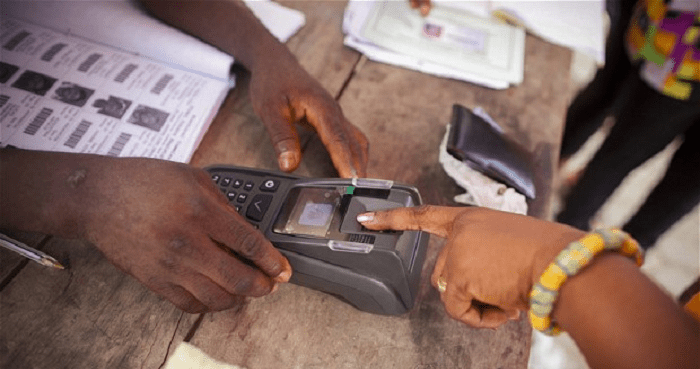The Electoral Commission of Ghana has clarified concerns about the security of their Biometric Verification Devices (BVDs) following recent speculations from a circulating memo titled “Return of biometric verification devices” which was reportedly signed by the Deputy Chairman of Operations.
EC, in a memo dated Thursday, March 7 directed its regional offices to return all outstanding Biometric Verification Devices (BVDs) to the head office.
The regional offices include Greater Accra, Eastern, Western, Central, Upper East, Savannah, Northern, North East, Western North, and Volta.
In a statement on Friday, March 22, 2024, the Commission described the memo in question, as a routine communication aimed at maintaining the accountability and proper return of all electoral equipment, including BVDs, to the Commission’s custody.
The Commission clarified that there have been no thefts of BVDs from their stores, contrary to rumours circulating on social media.
According to the statement, the only items stolen were five laptops, which are separate from the BVDs and cannot impact the integrity of elections.
“The memo in question, widely shared on social media, was a routine communication aimed at ensuring the accountability and returning of all electoral equipment, including BVDs, to the Commission’s custody. This procedure underscores our rigorous asset management system, designed to maintain a transparent and accountable inventory of all Commission assets. This Commission places high value on all its assets.”
They also assured the public that the BVDs are designed with sophisticated security features and cannot be utilized to compromise the integrity of elections without proper activation within the Commission’s electoral framework.
The Commission reiterated its commitment to upholding the highest standards of integrity in its operations and protecting the credibility of the electoral process.
The Commission urged the public and all stakeholders to approach information dissemination with accuracy and responsibility to prevent the spread of unverified speculations that could undermine public trust in the democratic processes.
Click here to read the full statement


